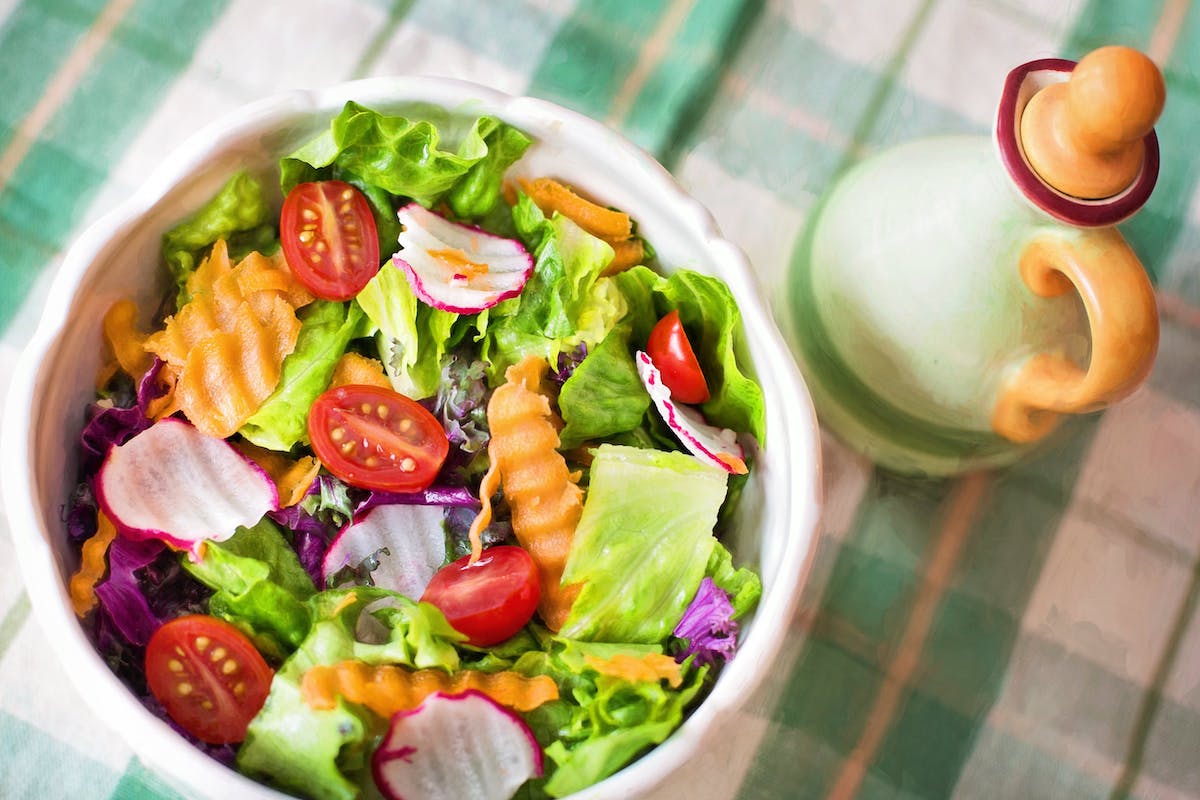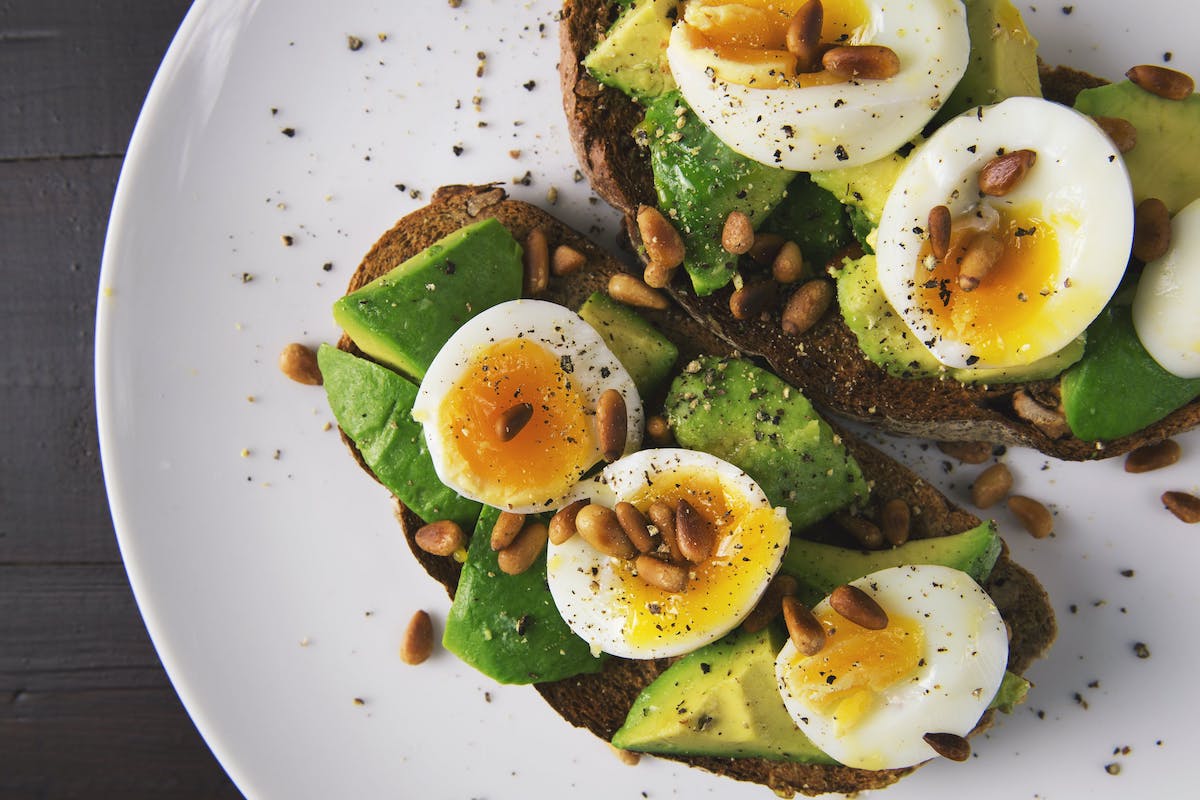
New Year brings new hope. When you woke up on Jan. 1, you may have felt motivated to make sweeping changes to your diet, hoping to supercharge weight loss, feel more energized, and enjoy the numerous other benefits of healthy eating, like disease risk reduction.
Yet, some data suggest that people tend to abandon New Year’s resolutions before the calendar flips to February. Yikes. A diet slip can feel devastating if healthy eating and weight loss were your goals. Perhaps you had seconds on a favorite dessert or ordered something from a drive-thru you swore you wouldn’t. Maybe you went overboard with friends. Importantly, you’re more than a number on a scale, and no food is a villain. However, reading those words might feel empty after you ate something that didn’t align with your resolution. Here’s what experts want you to know.

Why do you feel bad after a diet slip-up?
A diet slip-up doesn’t make you a bad person or mean you won’t achieve healthy habits. Still, experts share that feeling upset is common and valid.
“Any time we set out with a goal in life and plans don’t go as we hoped, we often experience guilt and shame. This emotional response can be powerful and lead to a sense of failure,” said Brittany Werner, MS, RDN, the director of coaching at Working Against Gravity. “Diet slip-ups are not failures. However, this lack of control over our plan often leads us into a negative feedback loop of our own behaviors.”
You also may not feel too hot physically — which is also expected.
“The GI issues that may come along with eating outside of your norm (or traveling!) can be frustrating,” said Maddie Pasquariello, MS, RD, a dietician. “Two of the most common are constipation, food sensitivity, or feeling bloated. Remember, some bloating after any meal is normal and nothing to be worried about.”

Do’s and don’ts after a diet slip-up
After a divergence from your healthy eating goals, you may be tempted to engage in higher intensity, longer-duration workouts or severely restrict calories to protect (or re-achieve) weight loss. Experts advise against these tactics and share what to do instead.
Don’t: Starve yourself
You may have consumed more calories than you wished, but experts don’t recommend trying to scale back to make up for the diet detour.
“Restricting calories or nutrients because you think you over-ate or enjoyed meals outside of your comfort zone falls contrary to everything we know about human nutrition and longevity,” said Pasquariello. “We often forget how flexible and adaptable our bodies are – remember that just like one workout or nutritious meal won’t make you healthy, the opposite is also true.”
No single food or meal will “make” you unhealthy, either. Starving yourself is not healthy, though.
“Starving oneself of nourishment can lead to serious health complications, including nutrient deficiencies, metabolic slowdown, and mental health issues due to the body’s deprivation of essential nutrients,” said Kelsey Costa, MS, RDN, a registered dietitian and nutrition consultant.
Do: Return to regular diet
Instead of a cleanse, get back in the saddle and on your meal plan.
“The best approach is usually just jumping back into your normal eating rhythms, which is a signal to your body in and of itself -that you’re safe [or] restrict it from the nutrients it needs, rather than trying to over-correct,” said Pasquariello.
If you’re experiencing physical discomfort, Costa suggests consuming foods rich in fiber and prebiotics, like fruits, vegetables, and plant-based proteins.
Be sure to drink up, too.
“Stay hydrated by drinking plenty of water and incorporating black coffee, unsweetened teas, or infused water for added benefits like antioxidants and anti-inflammatory compounds,” Costa said.
Don’t: Punish yourself with exercise
Exercise burns calories, but avoid using physical activity to “make up for” going over your recommended calorie number the day prior.
“Overexercising or using exercise as a form of punishment can lead to injuries, muscle wasting, and further health complications,” Costa said. “It’s crucial to approach fitness with a balanced mindset, ensuring adequate fueling and rest to maintain overall well-being and to prevent the body from falling into a harmful cycle of overexertion and depletion.”
Overexercising can also backfire.
“Increased exercise will often lead to an increase in hunger. That increased hunger often lends to a never-ending loop of restriction and overeating,” Werner said.
Do: Engage in movement you enjoy
Instead of trying a high-intensity workout that you don’t like, pick something that makes you feel good mentally and physically, perhaps Pilates or yoga (or both).
“You likely already have a sense of the workouts you actually enjoy, so don’t feel pressured to pick up a new workout plan or jump into a brand-new activity if you feel out of whack,” said Pasquariello. “Work with a certified personal trainer or fitness coach who can guide you through a safe ramp-up plan so that you can avoid injury and over-stressing the body.”
Do: Be nice to yourself
Nobody’s perfect. Rome wasn’t built in a day. These statements are cliches, but they have some validity, at least when keeping diet slips in perspective.
“Lasting behavior change takes time, and it’s important to recognize that this work is challenging,” said Werner. “To help set you up for a path of success, consider pairing with a nutrition professional. A registered dietitian or a certified nutrition coach can be a wonderful ally in your journey.”

Summary
A slip can feel defeating if you vowed to eat nutritiously or had weight loss goals in mind on Jan. 1. Experts encourage you to keep trying. No one off-the-plan meal or day will make you “unhealthy” or impossible to achieve your goal. Steer clear of taking drastic measures, like severely limiting calories or overexercising. Instead, return to your typical meal plan, focusing on plant-based meals with leafy green veggies, fruit, and protein such as legumes. Focus on moving in a way you enjoy mentally and physically, and give yourself grace. Change takes time.
Editors’ Recommendations
